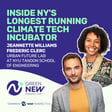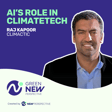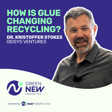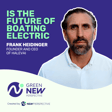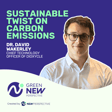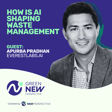
Cutting Digital Carbon Footprint by 30%: How Web Design Choices Can Lower CO2 Emissions
Learn how your digital footprint contributes to global CO2 emissions and what steps you can take to reduce your digital carbon footprint. In this episode of the Green New Perspective podcast, we explore the often overlooked environmental impact of our online activities with Fabio Mecarone, Marketing & Sustainability Manager at Karma Metrix.
Fabio discusses how Karma Metrix helps businesses check their digital footprint, lower their CO2 footprint, and improve sustainability in the digital space. Tune in to our cleantech podcast to deepen your environmental awareness and learn more about climate tech solutions for a greener future.
📚 Resources & Links:
- Website: https://www.karmametrix.com
- LinkedIn: https://www.linkedin.com/company/karma-metrix
- Instagram: https://www.instagram.com/karmametrix
🌍 Cleantech Podcast Created By New Perspective Marketing
This podcast is proudly sponsored by New Perspective Marketing, a dynamic growth marketing agency in Boston, MA, celebrating 20 years in business. We help sustainably focused B2B organizations grow their brands and scale up revenue. If you or your organization is looking to grow, visit https://www.npws.com for more info.
🎧 Subscribe:
- Spotify: https://bit.ly/3PSWIyI
- Apple Podcasts: https://bit.ly/3RvlHte
- YouTube: https://bit.ly/3RDzkXg
- Deezer: https://bit.ly/3PvQaof
- Amazon Music: https://bit.ly/3PQlijS
- Zencastr: https://bit.ly/48xt75s
💬 Follow Us On Social Media:
- Instagram: https://www.instagram.com/greennewperspective/
- Twitter: https://twitter.com/gnperspective
- LinkedIn: https://www.linkedin.com/company/new-perspective-marketing/
- Facebook: https://www.facebook.com/greennewperspective
- TikTok: https://www.tiktok.com/@greennewperspective
Podcast Key People
- Podcast Host: Dunja Jovanovic
- Executive Producer: Marko Bodiroza
- Creator: Nathan Harris
#cleantech #sustainability #podcast

